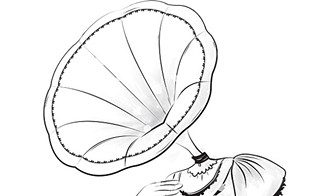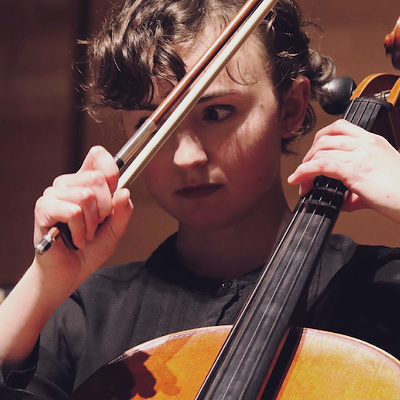It's a contemporary question with deep historical roots. Is technology "better for music or does it take the soul out of the music?" asks vocalist Janice Jackson on the phone before a rehearsal of Vonda De Ville in Temporal Follies---An Electropera, a piece created for her by Lukas Pearse.
The hour-long work will be performed in full February 2 through 7 at the Bus Stop Theatre, but Jackson and Pearse perform an excerpt this Friday as part of Upstream Music Association's Winter Summit 2010.
In Temporal Follies a 19th-century vaudeville singer, Vonda De Ville, gets a unique artistic opportunity. It ends up challenging her very identity. "She has her voice recorded at the beginning of the recording age and it steals her soul," Jackson explains.
During a separate call, Pearse delves further into history, pointing out how the piece starts at the beginning of the modern recording age: the pre-Victorian 19th century, when vaudeville, and its iconic player-pianos, seized the eastern seaboard of North America. Even earlier, he continues, in the 15th and 16th centuries musical forms were separated not only by instruments played, but by "musical automata," too; the barrel organ, for example. "The barrel organ is the first kind of recording device, for recording an idea and playing it back," he says.
This distinction goes to the heart of Temporal Follies: that recording has mediated our experience of music for a long time. But even as the means change much more rapidly these days, the "shock" of new technology remains constant.
Not surprisingly, Pearse has taught popular music history at Dalhousie besides working as a composer and performer (playing acoustic, electric, fretted and fretless bass in rock, jazz, folk, funk, dance and electronic outfits).
In Friday's excerpt, De Ville grasps the consequence of being recorded. The character, Jackson says, realizes, "I've been captured, caught and caged---and unhinged."
De Ville's soul-searching is a classic hero's journey, with a quest at its centre. "She spends her time searching for her soul, right to the present, in the new technology and the new styles that come along," says Jackson, who describes De Ville as a "lonely, desperate, dogged, but tough, stubborn woman." De Ville crosses time, almost two centuries, and many musical stages and styles, including ragtime, jazz, disco, even DJing. The role demands singing and acting chops, which Jackson has.
He structures the hour into a series of vignettes, or follies, in line with the vaudeville tradition. When audience members loved a tune on the player piano, from the likes of, for example, Charles K. Harris, who makes an appearance in De Ville's story, they bought the sheet music so they could play it on their own piano at home.
"Popular music is something that gets bought and sold," says Pearse. "You have to have an object, not just a performance."
Over the years, Pearse has collected musical ephemera, instruments, players and recorders---wax cylinders, gramophones, vinyl, tapes, reels, CDs and MP3s. As a boy he listened to 78rpm records. "I grew up with these voices, the idea that these very old voices had to happen some time and now they've travelled through time to get to here."













